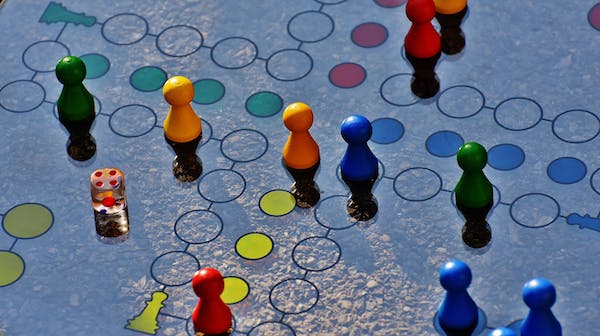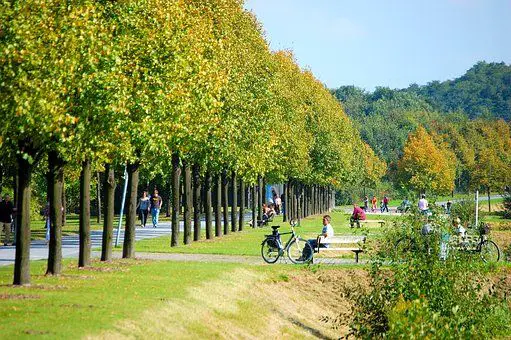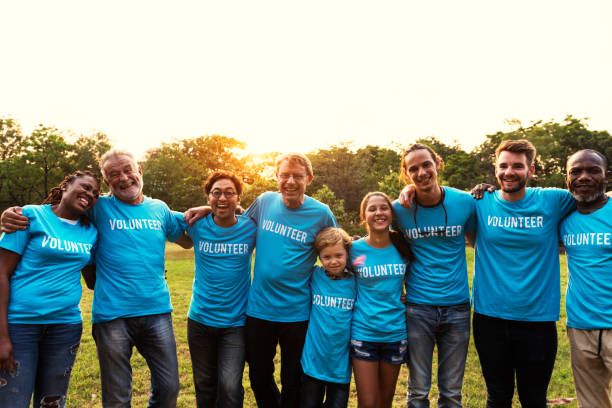Ways to Survive an Unplanned Vacation

Going on vacation can be a great way to recharge and reset, but what happens when your vacation is unplanned? Whether it's due to a canceled flight, unexpected weather, or other unforeseen circumstances, an unplanned vacation can be stressful and overwhelming.
However, with some preparation and a positive mindset, you can make the most of your unexpected time off. In this article, we'll explore ways to survive an unplanned vacation and turn it into an opportunity for adventure and relaxation.
Assess Your Situation

In life, we all face situations that require us to make important decisions. Whether it's about our career, relationships, finances, health, or any other aspect of our lives, making the right decisions can have a significant impact on our future.
But how do we know what the right decisions are? The answer lies in assessing our situation.
Assessing our situation means taking a step back and evaluating our current circumstances objectively. It involves analyzing our strengths, weaknesses, opportunities, and threats to make informed decisions that can help us achieve our goals.
Why is it important to assess your situation?

Assessing your situation is crucial for several reasons:
- Helps you make better decisions: When you have a clear understanding of your current situation, you can make informed decisions that align with your goals and aspirations.
- Identifies areas for improvement: Assessing your situation allows you to identify your strengths and weaknesses, helping you focus on areas that require improvement.
- Provides clarity: Assessing your situation provides clarity about where you stand and what you need to do to move forward.
- Reduces stress: When you have a clear plan of action based on an objective assessment of your situation, you can reduce stress and anxiety.
How to assess your situation?

Assessing your situation involves several steps. Here's how to do it:
- Identify your goals: Start by identifying your short-term and long-term goals. This can help you determine what steps you need to take to achieve those goals.
- Evaluate your current situation: Take a step back and evaluate where you are right now in relation to your goals. What are your strengths, weaknesses, opportunities, and threats? This is commonly referred to as a SWOT analysis.
- Seek feedback: Get feedback from people you trust, such as friends, family, or mentors. They can provide valuable insights that you might have overlooked.
- Create a plan of action: Based on your assessment, create a plan of action that outlines the steps you need to take to achieve your goals.
- Review and adjust: Regularly review your plan of action and make adjustments as necessary based on changes in your circumstances or feedback you receive.
In conclusion, assessing your situation is an important process that can help you make informed decisions and achieve your goals.
It allows you to evaluate where you are right now, identify areas for improvement, and create a plan of action that aligns with your aspirations.
So, take the time to assess your situation regularly and make the most of your opportunities.
Determine Your Budget

Why It's Important and How to Do It
Whether you're planning a vacation, buying a new car, or simply managing your day-to-day expenses, having a budget is crucial.
A budget is a financial plan that helps you manage your income and expenses, and make informed decisions about your spending habits.
In this article, we'll explore why it's important to determine your budget, and how to do it effectively.
Why is it important to determine your budget?

Determining your budget is important for several reasons:
- Helps you manage your money: By determining your budget, you can keep track of your income and expenses, and make sure you're not overspending.
- Helps you achieve your financial goals: Whether you're saving for a down payment on a house, paying off debt, or investing for your retirement, a budget can help you reach your financial goals.
- Reduces stress: Having a budget can help you reduce financial stress and anxiety, and give you peace of mind knowing you're in control of your finances.
- Helps you make informed decisions: When you have a clear understanding of your income and expenses, you can make informed decisions about your spending habits, and prioritize your expenses accordingly.
How to determine your budget?

Determining your budget involves several steps. Here's how to do it effectively:
- Calculate your income: Start by calculating your total monthly income, including your salary, bonuses, and any other sources of income.
- List your expenses: Make a list of all your monthly expenses, including rent/mortgage, utilities, groceries, transportation, entertainment, and any other expenses.
- Categorize your expenses: Categorize your expenses into fixed and variable expenses. Fixed expenses are those that remain the same each month, such as rent/mortgage and utilities. Variable expenses are those that can vary from month to month, such as entertainment and transportation.
- Determine your savings goals: Determine how much you want to save each month and prioritize your expenses accordingly.
- Create a budget: Use a spreadsheet or budgeting app to create a budget that reflects your income, expenses, and savings goals. Make sure to review your budget regularly and make adjustments as necessary.
Determining your budget is an important process that can help you manage your money, achieve your financial goals, and reduce stress.
By following the steps outlined in this article, you can create a budget that reflects your income, expenses, and savings goals, and make informed decisions about your spending habits.
So, take the time to determine your budget today and start taking control of your finances.
Consider Your Options

How to Make Informed Decisions
When faced with a decision, it can be overwhelming to determine the best course of action.
Whether it's about choosing a career path, making a big purchase, or deciding on a life-changing event, it's important to consider your options and make informed decisions. In this article, we'll explore how to consider your options and make informed decisions.
- Identify the problem: Start by identifying the problem or decision you need to make. Be specific about what you're trying to achieve and what outcome you're hoping for.
- Gather information: Gather as much information as possible about your options. Research the pros and cons of each option and consider the potential consequences of each decision.
- Weigh the pros and cons: Once you have all the information, weigh the pros and cons of each option. Make a list of the advantages and disadvantages of each decision and consider how they align with your goals and values.
- Consider the long-term impact: Think about the long-term impact of each decision. Consider how your decision will affect your future and whether it aligns with your long-term goals.
- Seek advice: Seek advice from people you trust and respect. Consider talking to family, friends, colleagues, or professionals who have experience in the area you're considering.
- Make a decision: Once you've gathered all the information, weighed the pros and cons, and considered the long-term impact, make a decision. Choose the option that aligns with your goals, values, and priorities.
- Evaluate the outcome: After making a decision, evaluate the outcome. Consider whether the decision was successful in achieving your desired outcome and what you could have done differently.
Considering your options is an important process in making informed decisions. By identifying the problem, gathering information, weighing the pros and cons, considering the long-term impact, seeking advice, making a decision, and evaluating the outcome, you can make the best decision for your situation.
So, take the time to consider your options carefully and make informed decisions that align with your goals and values.
Plan Your Activities

How to Make the Most of Your Time
When going on vacation or taking time off, it's important to plan your activities to make the most of your time. Whether you're looking for relaxation or adventure, having a plan in place can help you achieve your goals and make the most of your time. In this article, we'll explore how to plan your activities and make the most of your time.
- Determine your goals: Start by determining your goals for the trip. What do you want to accomplish? What activities are you interested in? Do you want to relax, explore, or do a combination of both? By determining your goals, you can create a plan that meets your needs.
- Research your destination: Once you've determined your goals, research your destination. Look for popular attractions, activities, and events. Consider the weather and time of year, as this can affect what's available and what you're able to do.
- Create a rough itinerary: Using your research, create a rough itinerary of the activities you want to do each day. Don't forget to include time for meals, rest, and relaxation.
- Prioritize your activities: Prioritize your activities based on your goals and interests. Consider what's most important to you and what you're willing to skip if time is limited.
- Keep an open mind: While it's important to have a plan, it's also important to keep an open mind. Unexpected opportunities may arise, and it's important to be flexible and willing to adjust your plans accordingly.
- Leave room for spontaneity: While planning your activities is important, it's also important to leave room for spontaneity. This allows you to explore and discover new things, and can lead to unexpected and memorable experiences.
- Stay organized: Keep all of your travel documents, reservations, and itineraries organized and easily accessible. Consider using a travel app or online tool to help you stay organized.
In conclusion, planning your activities is an important part of making the most of your time while on vacation or taking time off.
By determining your goals, researching your destination, creating a rough itinerary, prioritizing your activities, keeping an open mind, leaving room for spontaneity, and staying organized, you can make the most of your time and create a memorable experience. So, take the time to plan your activities and enjoy your time off to the fullest.
Explore Your Local Area

How to Discover Hidden Gems in Your Own Backyard
When planning a vacation or taking time off, it's easy to overlook the hidden gems in your own local area. However, taking the time to explore your local area can be a rewarding and affordable way to discover new places and experiences.
In this article, we'll explore how to explore your local area and discover hidden gems in your own backyard.
- Research local attractions: Start by researching local attractions. Look for museums, parks, historical sites, and other local landmarks. Consider what interests you and what you haven't explored yet.
- Take a walk: Take a walk in your neighborhood or a nearby park. Look for hidden trails, murals, and other interesting spots. You never know what you might find just by taking a walk around your own community.
- Try local cuisine: Explore local cuisine by trying restaurants and food trucks in your area. Look for unique dishes and flavors that you may not have tried before.
- Attend local events: Attend local events such as festivals, concerts, and farmers' markets. These events are often affordable and provide a great opportunity to connect with your community.
- Visit local businesses: Visit local businesses such as bookstores, boutiques, and art galleries. These businesses often showcase local artists and provide a unique shopping experience.
- Take a day trip: Take a day trip to a nearby town or city. Look for unique attractions and experiences that you can't find in your own local area.
- Ask locals for recommendations: Ask locals for recommendations on their favorite hidden gems in the area. Locals often have insider knowledge and can provide valuable recommendations.
Exploring your local area can be a rewarding and affordable way to discover hidden gems in your own backyard. By researching local attractions, taking a walk, trying local cuisine, attending local events, visiting local businesses, taking a day trip, and asking locals for recommendations, you can discover new places and experiences that you never knew existed.
So, take the time to explore your local area and discover the hidden gems in your own backyard.
Take a Road Trip

How to Plan the Ultimate Adventure on Wheels
A road trip can be one of the most exciting and rewarding ways to travel. It offers the freedom to explore new places and create your own adventure.
However, planning a road trip can be overwhelming, especially if it's your first time. In this article, we'll explore how to plan the ultimate adventure on wheels.
- Choose your destination: Start by choosing your destination. Consider the distance, time of year, and the attractions you want to see. You can also consider creating a loop that allows you to visit multiple destinations.
- Plan your route: Once you've chosen your destination, plan your route. Use a map or GPS to find the best roads to take, and consider alternative routes to avoid traffic or see more attractions.
- Set a budget: Set a budget for your road trip. Consider the cost of gas, food, accommodation, and activities. Look for ways to save money, such as camping instead of staying in hotels or cooking your own meals instead of eating out.
- Pack wisely: Pack wisely by considering the climate and the activities you'll be doing. Pack light and bring only what you need to avoid cluttering up your car.
- Prepare your vehicle: Prepare your vehicle for the trip. Make sure it's in good condition and up to date on maintenance. Check the tires, brakes, and fluids to ensure they're in good working order.
- Book accommodation: Book accommodation in advance to avoid scrambling for a place to stay. Look for options that fit your budget and consider camping or staying in unique accommodations such as Airbnbs or hostels.
- Plan your activities: Plan your activities in advance, but also leave room for spontaneity. Look for outdoor activities such as hiking, kayaking, and swimming, as well as cultural experiences such as visiting museums and historical sites.
In conclusion, planning a road trip can be a daunting task, but it can also be an incredibly rewarding and unforgettable adventure.
By choosing your destination, planning your route, setting a budget, packing wisely, preparing your vehicle, booking accommodation, and planning your activities, you can create the ultimate adventure on wheels. So, grab a map, hit the road, and enjoy the freedom and excitement of a road trip.
Try a New Hobby

How to Discover Your Passion and Enhance Your Life
Trying a new hobby can be a fun and fulfilling way to explore your interests and learn new skills. Hobbies can also help reduce stress, improve mental health, and provide a sense of accomplishment.
However, it can be challenging to know where to start when trying a new hobby. In this article, we'll explore how to discover your passion and enhance your life through trying a new hobby.
- Consider your interests: Start by considering your interests. What activities do you enjoy doing in your free time? Do you have any hobbies that you've always wanted to try? Think about what excites you and what you want to learn.
- Research hobbies: Research different hobbies that align with your interests. Look for classes, workshops, or online resources that can help you learn the basics. Consider joining a community or club where you can connect with others who share your interests.
- Start small: When trying a new hobby, start small. Don't feel pressure to master a new skill right away. Instead, focus on learning the basics and building your skills over time. Enjoy the process of learning and experimenting.
- Make time for your hobby: Make time for your hobby by setting aside dedicated time each week. Treat your hobby as a priority and schedule it into your routine. This will help you stay committed and motivated.
- Stay open-minded: When trying a new hobby, stay open-minded. Don't be afraid to try something new or push yourself out of your comfort zone. You never know where your new hobby might lead you or what opportunities it might bring.
- Track your progress: Track your progress and celebrate your successes. Keep a journal or log of what you've learned, what challenges you've overcome, and what you're proud of. This will help you stay motivated and see how far you've come.
In conclusion, trying a new hobby can be a fun and rewarding way to explore your interests, learn new skills, and enhance your life.
By considering your interests, researching hobbies, starting small, making time for your hobby, staying open-minded, and tracking your progress, you can discover your passion and find joy in your new hobby. So, take the leap and try something new today!
Relax and Unwind

How to De-stress and Recharge Your Batteries
In today's fast-paced world, it's easy to feel overwhelmed and stressed out. Taking time to relax and unwind is essential for our mental and physical health. In this article, we'll explore some ways to de-stress and recharge your batteries.
- Practice mindfulness: Mindfulness is a powerful tool for reducing stress and anxiety. Practicing mindfulness can be as simple as taking a few deep breaths, closing your eyes, and focusing on the present moment. There are also many mindfulness apps and guided meditations available to help you get started.
- Get active: Exercise is an excellent way to reduce stress and improve your mood. Even a short walk or a few minutes of stretching can help you feel more relaxed and energized.
- Take a break from technology: Our constant connection to technology can be a source of stress. Taking a break from social media, email, and other digital distractions can help you recharge and reset.
- Practice self-care: Self-care activities such as taking a relaxing bath, getting a massage, or reading a good book can help you unwind and de-stress. Make time for these activities regularly, and treat them as a priority.
- Connect with loved ones: Spending time with loved ones is an excellent way to reduce stress and improve your mood. Schedule time to connect with friends and family, even if it's just a quick phone call or a text message.
- Get creative: Engaging in creative activities such as painting, writing, or playing music can be a great way to relax and unwind. These activities can also help you express your emotions and process stress.
Taking time to relax and unwind is essential for our mental and physical health. By practicing mindfulness, getting active, taking a break from technology, practicing self-care, connecting with loved ones, and getting creative, you can de-stress and recharge your batteries.
So, take a deep breath, let go of your worries, and give yourself permission to relax and unwind.
Connect with Others

How to Build Stronger Relationships and Improve Your Life
Human beings are social creatures, and we thrive on connection and interaction with others. Building strong relationships can enhance our lives in numerous ways, from boosting our mental health to providing support and encouragement. In this article, we'll explore some ways to connect with others and build stronger relationships.
- Be present: When spending time with others, be present and engaged. Put away your phone and other distractions, and focus on the person in front of you. Listen actively, ask questions, and show genuine interest in their life.
- Show appreciation: Express gratitude and appreciation for the people in your life. Take the time to acknowledge their efforts, say thank you, and show them that you value them.
- Share your interests: Sharing your interests and passions with others can help you connect on a deeper level. Whether it's a hobby, a favorite book, or a new recipe, sharing your enthusiasm can help you bond with others.
- Volunteer: Volunteering is an excellent way to connect with others and give back to your community. Find a cause that you're passionate about, and look for opportunities to get involved.
- Join a group or club: Joining a group or club that aligns with your interests can be an excellent way to connect with like-minded individuals. Whether it's a book club, a hiking group, or a social club, look for opportunities to connect with others who share your passions.
- Practice empathy: Empathy is the ability to understand and share the feelings of others. Practicing empathy can help you build stronger relationships by showing others that you care and that you're willing to listen and support them.
In conclusion, building strong relationships is essential for our mental and emotional well-being. By being present, showing appreciation, sharing your interests, volunteering, joining a group or club, and practicing empathy, you can connect with others and improve your life.
So, take the time to invest in your relationships, and watch as they grow stronger and more meaningful over time.
Use Social Media

Social media can be a great tool to help you survive an unplanned vacation. Here are some ways you can use social media:
- Connect with locals: Use social media platforms like Twitter, Instagram, or Facebook to connect with locals in the area. You can ask for recommendations on places to eat, things to do, and attractions to visit.
- Follow travel bloggers: Follow travel bloggers who have visited the area you're in or nearby destinations. They may have some great insights and tips on how to make the most of your unplanned vacation.
- Check for last-minute deals: Follow travel websites or airlines on social media to stay up to date on any last-minute deals or discounts that may be available.
- Share your experiences: Use social media to share your experiences with friends and family. You can share photos, videos, or stories about your adventures, and even ask for recommendations from your social media followers.
- Join local groups: Join local Facebook groups or other online communities to connect with other travelers or locals. You may be able to find travel buddies or get insider tips on things to do and see in the area.
Just remember to stay safe online and be cautious about sharing personal information or meeting up with strangers you've met on social media.
Attend Local Events

Attending local events is a great way to make the most of an unplanned vacation. Here are some tips on how to find and attend local events:
- Check online: Check online for local events calendars or city websites that list upcoming events. You can also check out social media pages or groups for the area you're visiting.
- Ask locals: If you're staying in a hotel or Airbnb, ask the staff or hosts about any upcoming events in the area. Locals are a great resource for finding out about local events.
- Visit local tourist information centers: Tourist information centers or visitor centers are a great place to find information about upcoming events. They often have brochures or flyers with details about local events.
- Attend free events: Look for free events or festivals that are happening in the area. These events are often a great way to experience local culture without breaking the bank.
- Try something new: Be open to trying new things and attending events that you may not have considered before. You may discover a new hobby or interest that you never knew you had.
- Engage with the community: Attend events with an open mind and engage with the local community. Strike up conversations with locals and other travelers and learn more about the area and its culture.
Volunteer

Volunteering during an unplanned vacation can be a great way to not only make a positive impact on the local community but also to meet new people and have unique experiences. Here are some tips on how to find and participate in volunteer opportunities:
- Research local organizations: Research local organizations that align with your interests and values. Look for organizations that are doing work that you are passionate about or that align with your skills and experience.
- Contact the organizations: Reach out to the organizations you are interested in volunteering for and inquire about volunteer opportunities. Ask about their requirements, scheduling, and any training they may require.
- Attend a local event: Attend a local event or festival and look for opportunities to volunteer. Many organizations will have booths or information tables at these events where you can learn more about their work and volunteer opportunities.
- Use volunteer matching websites: Use websites such as VolunteerMatch, Idealist, or All for Good to find local volunteer opportunities. These websites allow you to search for volunteer opportunities based on your location and interests.
- Be flexible: Be open to volunteering in different ways, such as helping with a local event or doing a one-day service project. This can be a great way to have a positive impact on the community while also having a unique and memorable experience.
Remember to always be respectful of the local culture and customs when volunteering, and to follow the organization's guidelines and instructions.
Stay Healthy and Active

Staying healthy and active during an unplanned vacation can be challenging, but it is important to prioritize your physical and mental health. Here are some tips on how to stay healthy and active:
- Stay hydrated: Drink plenty of water throughout the day, especially if you are walking or spending time outdoors. Dehydration can cause fatigue, headaches, and other health problems.
- Pack healthy snacks: Pack healthy snacks like fruit, nuts, and granola bars to keep your energy levels up throughout the day. This can also help you save money on expensive snacks and meals.
- Exercise: Find ways to incorporate exercise into your daily routine, such as taking a walk in the morning or doing a workout in your hotel room. You can also look for local gyms or fitness classes to attend.
- Get enough rest: Make sure to get enough rest each night to recharge your body and mind. Lack of sleep can lead to fatigue and a weakened immune system.
- Try local foods: Try local foods that are fresh and nutritious, such as fruits, vegetables, and lean proteins. This can help you stay healthy while also experiencing the local culture.
- Stay active: Look for activities that keep you active, such as hiking, biking, or swimming. This can be a great way to explore the area while also getting some exercise.
Remember to listen to your body and take breaks when needed. If you start to feel sick or experience any health problems, seek medical attention as soon as possible.
Exercise

Exercising during an unplanned vacation can be a challenge, but it's important to prioritize physical activity for your physical and mental health. Here are some tips on how to exercise during an unplanned vacation:
- Walk or bike: If you're staying in a walkable or bikeable area, take advantage of it! Walk or bike instead of taking a car or public transportation. This is a great way to explore the area and get some exercise at the same time.
- Use the hotel gym: Many hotels have on-site gyms or fitness centers that guests can use. Take advantage of this and schedule a workout each day.
- Take a fitness class: Look for local fitness studios or gyms that offer classes such as yoga, Pilates, or dance. This can be a great way to try something new and meet locals.
- Use bodyweight exercises: If you don't have access to a gym or fitness studio, use bodyweight exercises such as squats, lunges, and push-ups to get a workout in.
- Swim: If you're near a beach, lake, or pool, take a swim! Swimming is a great low-impact exercise that works the entire body.
- Explore nature: Take a hike or go for a run in a nearby park or nature reserve. This is a great way to get some fresh air and exercise while experiencing the local scenery.
Remember to listen to your body and take breaks when needed. If you start to feel sick or experience any health problems, seek medical attention as soon as possible.
Eat Healthy

Eating healthy during an unplanned vacation can be a challenge, but it's important to prioritize nutrition for your physical and mental health. Here are some tips on how to eat healthy during an unplanned vacation:
- Pack healthy snacks: Pack healthy snacks like fruit, nuts, and granola bars to keep your energy levels up throughout the day. This can also help you save money on expensive snacks and meals.
- Cook your own meals: If you're staying in a hotel or Airbnb with a kitchen, cook your own meals using fresh ingredients. This can be a fun way to try local foods and save money on eating out.
- Choose healthy options when eating out: When eating out, look for healthy options such as salads, grilled meats, and vegetables. Avoid fried foods and dishes with a lot of added sugars.
- Drink plenty of water: Drink plenty of water throughout the day to stay hydrated and keep your body functioning properly.
- Try local foods: Try local foods that are fresh and nutritious, such as fruits, vegetables, and lean proteins. This can help you stay healthy while also experiencing the local culture.
- Plan ahead: If you know you'll be out and about all day, pack a healthy lunch or snacks to take with you. This can help you avoid unhealthy fast food options.
Remember to listen to your body and eat when you're hungry. Don't skip meals or restrict your food intake, as this can lead to low energy levels and mood swings.
Get Plenty of Rest

Getting plenty of rest during an unplanned vacation is important for your physical and mental health. Here are some tips on how to get enough rest:
- Stick to a regular sleep schedule: Try to stick to a regular sleep schedule as much as possible, even if you're on vacation. This can help regulate your body's internal clock and make it easier to fall asleep at night.
- Create a relaxing sleep environment: Make sure your sleeping environment is comfortable and conducive to sleep. This may include using earplugs or an eye mask, adjusting the temperature, or using a white noise machine.
- Avoid screens before bed: Avoid using screens (such as your phone, tablet, or laptop) for at least an hour before bed. The blue light emitted by screens can interfere with your body's natural sleep cycle.
- Practice relaxation techniques: Practice relaxation techniques such as meditation or deep breathing before bed to help calm your mind and prepare for sleep.
- Take naps if needed: If you feel tired during the day, take a short nap (no longer than 20-30 minutes) to help recharge your batteries.
- Limit caffeine and alcohol: Limit your intake of caffeine and alcohol, as both can interfere with your ability to sleep.
Remember to listen to your body and prioritize rest when needed. If you're feeling exhausted or have trouble sleeping, take a break and rest. This can help you feel refreshed and energized for the rest of your vacation.
Make the Most of Your Time

Making the most of your time during an unplanned vacation can be a challenge, but with a little planning and flexibility, you can have a memorable and enjoyable experience. Here are some tips on how to make the most of your time:
- Set priorities: Make a list of the top things you want to do or see during your vacation, and prioritize them based on your interests and schedule.
- Be flexible: Be open to changing your plans if necessary. You may discover new things to do or unexpected events that you want to attend, so don't be afraid to adjust your itinerary as needed.
- Plan ahead: Research local attractions, events, and activities before your trip. This can help you make the most of your time and avoid missing out on must-see sights or experiences.
- Take advantage of downtime: Use downtime (such as waiting for transportation or resting in your hotel room) to plan your next activity or explore nearby areas.
- Connect with locals: Talk to locals and ask for recommendations on things to do or places to eat. Locals can offer insider tips and suggestions that you may not find in guidebooks or online.
- Stay organized: Keep a map, itinerary, and important information (such as hotel addresses and phone numbers) handy. This can help you stay organized and minimize stress during your vacation.
Remember to take breaks and rest when needed. Overplanning and trying to do too much can lead to exhaustion and burnout, so be sure to pace yourself and enjoy the moment.
Practice Mindfulness

Practicing mindfulness during an unplanned vacation can help you stay present and fully enjoy your experience. Here are some tips on how to practice mindfulness:
- Be present: Focus on the present moment and engage all of your senses. Take in the sights, sounds, smells, and tastes of your surroundings.
- Let go of distractions: Let go of distractions such as worries about work or stressors from home. Focus on what's happening in the present moment, and let go of anything that's not serving you in the present.
- Practice deep breathing: Take a few deep breaths to help calm your mind and body. This can help you relax and stay present.
- Practice gratitude: Take a moment to reflect on what you're grateful for during your vacation. This can help shift your focus to the positive aspects of your experience.
- Practice mindfulness activities: Try mindfulness activities such as yoga, meditation, or walking in nature. These activities can help you stay present and connected to your surroundings.
- Minimize technology: Minimize your use of technology during your vacation, and focus on connecting with the people and places around you. This can help you stay present and fully engage in your experience.
Remember to be patient and kind to yourself as you practice mindfulness. It takes time and practice to fully engage in the present moment, so don't get discouraged if your mind wanders or if you find it challenging at first.
With consistent practice, mindfulness can become a valuable tool for enjoying your unplanned vacation.
Learn Something New

Learning something new during an unplanned vacation can be a great way to expand your knowledge and enhance your experience. Here are some tips on how to learn something new during your vacation:
- Take a class or workshop: Look for classes or workshops that interest you, such as cooking classes, language classes, or art workshops. This can be a fun and interactive way to learn new skills.
- Visit museums or cultural sites: Visit museums or cultural sites that showcase the history and traditions of the area you're visiting. This can be a great way to learn about local culture and gain new insights.
- Attend local events: Attend local events such as concerts, festivals, or performances. This can be a fun way to learn about local traditions and customs.
- Read books or watch documentaries: Read books or watch documentaries about the area you're visiting. This can help you gain a deeper understanding of the local culture and history.
- Take guided tours: Take guided tours of the area you're visiting. This can be a great way to learn about the history and significance of local landmarks and attractions.
- Learn from locals: Talk to locals and ask them about their culture, traditions, and way of life. Locals can offer unique insights and perspectives that you may not find in guidebooks or online.
Remember to have fun and be open to new experiences as you learn something new during your vacation. Learning can be a fun and enriching part of your experience, so don't be afraid to try new things and step out of your comfort zone.
Reflect on Your Goals

Taking time to reflect on your goals during an unplanned vacation can be a valuable experience. Here are some tips on how to reflect on your goals during your vacation:
- Set aside dedicated time: Set aside dedicated time to reflect on your goals. This can be in the morning before you start your day, or in the evening before you go to bed.
- Write down your goals: Write down your goals and review them regularly. This can help you stay focused and motivated towards achieving your goals.
- Reassess your goals: Use your vacation as an opportunity to reassess your goals and priorities. Are your goals still relevant and aligned with your values? Do you need to make any changes or adjustments to your goals?
- Visualize your future: Visualize what your life will look like when you achieve your goals. This can help you stay motivated and focused on your vision for the future.
- Create an action plan: Create an action plan to help you achieve your goals. Break down your goals into smaller, achievable steps, and set deadlines for each step.
- Celebrate your progress: Celebrate your progress towards your goals, no matter how small. Recognize your accomplishments and use them as motivation to keep moving forward.
Remember that reflecting on your goals is an ongoing process, and your goals may evolve and change over time. Use your vacation as an opportunity to check in with yourself and ensure that you're on the right track towards achieving your goals.
Conclusion
An unplanned vacation can be a challenging experience, but it's also an opportunity to slow down, recharge, and make the most of your time.
By assessing your situation, planning your activities, connecting with others, prioritizing your health and wellbeing, and making the most of your time, you can turn your unplanned vacation into an adventure and come back feeling refreshed and energized.
Remember to stay positive and embrace the unexpected, and you might be surprised at what you discover.
